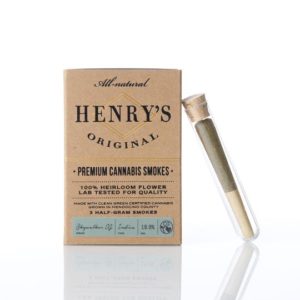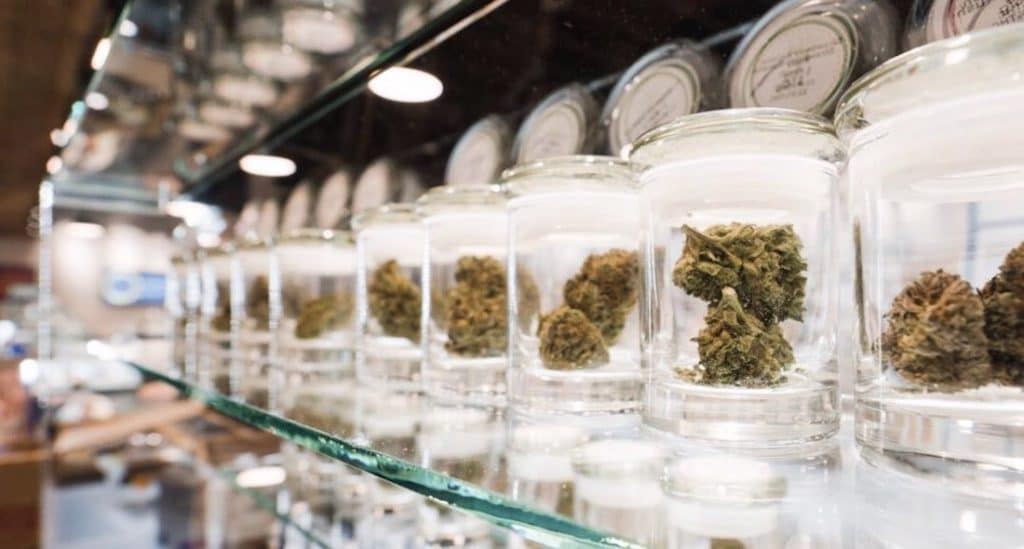This is part of a series of articles highlighting some of the issues agencies and marketers will focus on during 2019.
They’re calling it the “green rush”—the ever-increasing investment of hopes and dreams flowing into the legal cannabis industry. As more growers, distributors, and retailers either start up or go after a bigger part of the market, competition and consolidation is inevitable as well.
The next few years are likely to be bumpy—marketing a product on a state-by-state basis to a constantly expanding customer base will remain a challenge, though likely a rewarding one.
Much of the groundwork was laid in 2018, when Canada became the first G7 nation to legalize recreational marijuana use and Ontario-based Canopy Growth, a massive cannabis conglomerate, went public on the New York Stock Exchange. Investments by Constellation Brands, the New York liquor company behind Mondavi and Svedka, have helped drive up Canopy’s stock price so its market capitalization now stands at $17 billion—on par with American Airlines. In December 2018, Altria, the owner of Philip Morris, made a similar bet, investing $1.8 billion in the Canopy rival Cronos.
Venture capital has also continued to flow into the cannabis market, spurred on by estimates like those from Cowen & Company that projected that marijuana sales in the U.S. would reach $75 billion by 2030. Worldwide, legal cannabis is already a significant market: Arcview Market Research and BDS Analytics estimate that worldwide spending will reach $16.9 billion in 2019, a 38% jump from spending a year before.
A dollop of risk
Of course, investors are more cautious when it comes to U.S.-specific opportunities, given that cannabis remains illegal under federal law, and every state legalizing recreational use has crafted its laws slightly differently. At the end of the year Michigan became the tenth state to join Colorado, California, and the other more established (albeit still volatile) state markets.
Given pot’s less-than-entirely-legal status, the high potential rewards come with a large dollop of risk. To help navigate these obstacles, agency specialists and consultancies and marketing agencies have grown up as quickly as the cannabis businesses themselves.
Olivia Mannix and Jennifer DeFalco founded Cannabrands, which describes itself on its website as “world’s first full-service marketing agency dedicated to the cannabis space,” in 2014, the same year in which its home state of Colorado legalized recreational marijuana.

Another long-running firm, The Cannabis Marketing Lab (TCML), arose as a subsidiary of Celeste Miranda’s Miranda Marketing Lab, in San Luis Obispo, CA. Miranda’s first cannabis-adjacent client was a grow-light manufacturer, and may have initially seemed like a one-off. Now, 95% of the overall company’s business relates to cannabis: advocacy groups, tour operators, law firms, event companies, and horticultural suppliers.
Despite their specialization, much of what these and other cannabis-centric agencies do for their clients are the same as other agencies: social media, websites, design, press releases and other content, SEO, video, project management. However, given that it’s still a relatively new market, it’s especially important that agencies can help with explaining cannabis products to the public, setting themselves apart from competitors through a strong brand, and attracting investment.
“Crafty” marketing
Another essential skill is help with state regulations controlling advertisements. Given that cannabis is outlawed by the federal government, some common kinds of advertising, including mail, are off limits entirely. It also remains a felony to place an ad in a magazine or newsletter for a Schedule I substance, which is still the classification of cannabis. At this point, there is no easy way to run a purely creative shop, given that the ads appear in a highly regulated (and often changing) environment.
One common problem is that state regulators must be convinced that ads have not been made to appeal directly to children—a subjective call. Similarly, ads in Colorado cannot be placed in outlets where more than 30 percent of the audience would be “reasonably expected to be under the age of 21.” And ads in California can’t appear on an interstate, or even a state highway that crosses the border of any other state. Store locations and signage also tend to be closely regulated.
“Marketing cannot be done on mainstream media at the moment,” according to Jamie Warm, CEO of the organic cannabis supplier Henry’s Original. “The best marketing at this moment is through direct customer interaction and influencers. These are high touch/less reach and more expensive methods of advertising, but they provide the opportunity to build a loyal following for brands and companies with an authentic story.”
Facebook, Instagram, and major cable networks don’t permit cannabis advertising, though cannabis businesses do use social media, particularly Instagram but they have to be “crafty,” Warm says, or risk losing their account for violating terms and conditions. “We have not used any influencers but it is a common practice; influencers don’t risk losing their accounts because they are not selling anything. They are just promoting their lifestyle.”
Such regulations are real roadblocks to companies with little brand recognition to fall back on. Cannabis marketers need to rely on unique, and perhaps extreme creative tactics to reach potential customers and get their story out. And because cannabis’s murky status in the U.S. won’t change anytime soon, most of the large generalist agencies and corporations are likely to continue to keep it at arm’s length, despite the upside.
“The tight control over conventional ads is forcing marketers to get creative and find new ways to expose products to the market and tell a brand’s story,” says Bryce Berryessa, the head of the edibles manufacturer and distributor La Vida Verde, and a founding board member of the California Growers Association.
This provides a real opportunity for marketers, consultants, and anyone else smart and scrappy enough to help cannabis companies grow their businesses and get their piece of the “green rush” before it’s too late. After all, according the Berryessa, the “potential size of the market is every single open-minded adult over the age of 21 in the United States.”





Join the conversation